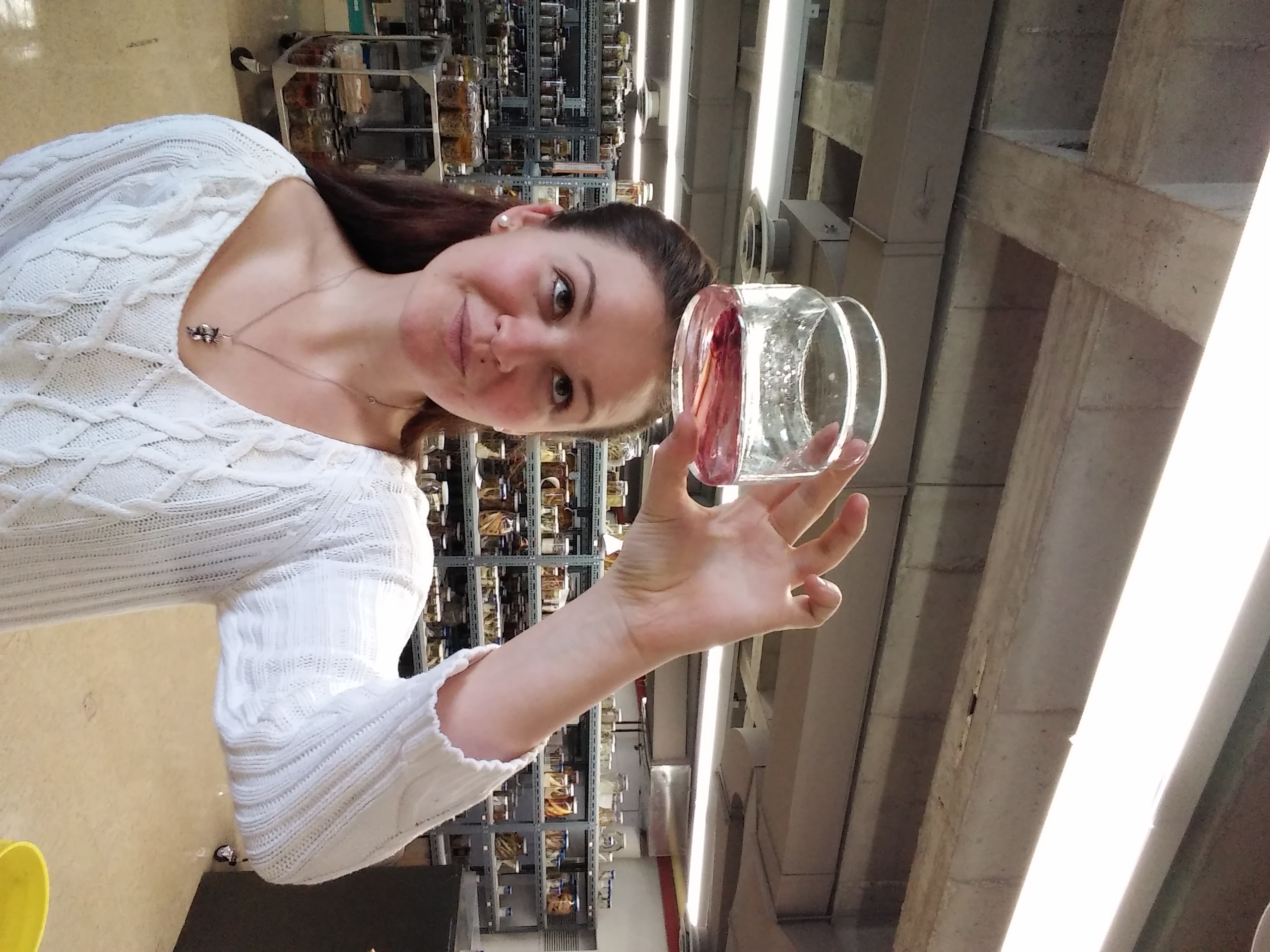Oksana Vernygora (left) working with her PhD supervisor Alison Murray on a study published in 2018 in which they identified a previously unknown species of ancient "lizard fish." (Photo: Supplied)
Between February and March 2014, the Crimean Peninsula was annexed by the Russian Federation in a dispute that pitted neighbours along their allegiances to the Ukraine capital in Kyiv and a historical attachment to Moscow. More than 13,000 lost their lives during the conflict, countless others were injured and nobody in or from the region was left unscathed.
For Oksana Vernygora, then a fledgling master’s student in the Faculty of Science at the University of Alberta who had only been chasing her education dreams away from what used to be Ukraine for a few months, her old home abruptly became part of a new country.
“All of a sudden the place that I used to go home to was another country and I was unable to travel home,” she said.
Born in Kerch, the city of two seas, located in Crimea between the Black Sea and the Sea of Azov, Vernygora said some of her fondest memories are of heading off to the local fish market early in the morning with her parents, later by herself, to pick the freshest fish to be delivered from the fishing boats that same morning.
“After bringing fish home, I would spend some time examining fish before it was time to cook it,” said Vernygora, who said she can still taste her favourite dish, smoked herring. “Collecting herring scales was my favourite task. My parents and sister used to smile at my fascination with fish.”

Herring is not just Vernygora’s quaint fascination. In countries that border the Black Sea, herring, anchovies and other “forage fish” such as sardines make up more than two-thirds of the annual catch and are considered a food staple, a key economic driver in the region and a way of life.
“Herring is a very cultural fish, and after I finished my undergraduate degree in Crimea, I just wanted to know everything there was to know about them, and the University of Alberta offered me that opportunity,” she said.
“I think that to me research has always stemmed from and has been tightly connected to my everyday life—fish markets, nature walks, fishing.”
At first glance, the last place someone looking to study these forage fish would be at a landlocked prairie university a world away. Yes, there is a strong Ukrainian heritage, but locally tins of herring and anchovies are reserved for the back of pantries and are generally considered more of an acquired taste than a staple.
“In biology, eventually you just want to know the evolutionary history of what you are studying,” she said. “What did they look like? What sequence of events led them to where they are? Because they’re found in different places and different environments around the world.”
Then she came to the right place. Under the supervision of biological science professor Alison Murray and the might of one of the world’s top paleontology programs, Vernygora flourished. She jumped from her master’s degree into a role as a PhD student, and in the process discovered what real resilience means.
It turns out herring and anchovies have existed for about 250 million years, virtually unchanged.
“They are a great example of evolutionary success,” she said. “They lived through mass extinctions that killed off all the dinosaurs and a whole bunch of other animals. They are very adaptable organisms that are capable of surviving in different environments.”
Not only that, but while there are no distant relatives of herring currently patrolling the rivers and lakes of Alberta, the province’s fossil record says that wasn’t always the case.
“About 76 million years ago, there were herring in Alberta,” said Vernygora. “In that respect, Alberta is one of the best places to be for my research.”
However, Vernygora quickly expanded her interest beyond the evolution of herring. In 2018, she was co-author of a paper describing a never-before-seen species of “lizard fish” with no relatives, found by a child in a piece of flagstone during a monastery tour in Colombia.
She also worked on a project describing an ancient sturgeon found in Dinosaur Provincial Park by undergrad students doing field work there.
Vernygora officially graduates from the U of A this week, and is preparing to move her work from biological science researcher Felix Sperling’s lab, in which she has worked since September, to the University of Kentucky, where she will continue her post-doctoral research.
As for home, as things settled down, Vernygora has been back to Crimea where her parents remain, although her sister and her family now live in Ukraine, which makes visiting that much harder.
It’s also no longer the same place she once called home.
“After the drastic changes starting in 2013, I knew that the place where I grew up and first developed my interest in science was not the same anymore, and it probably never will be the same,” she said. “It was then that I realized it was more important to me than ever before to continue my studies and develop my research subject, because it is a form of my heritage.”